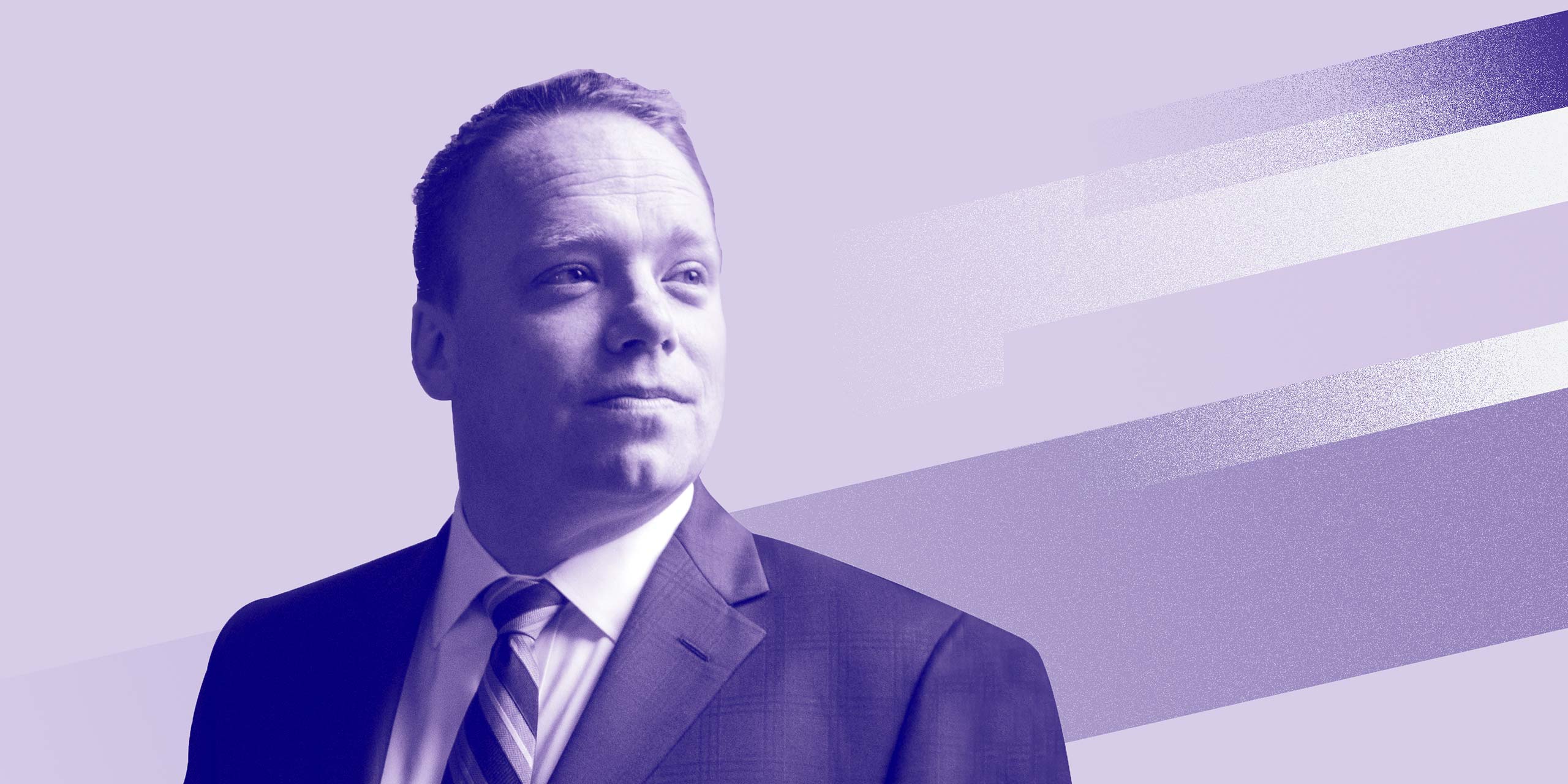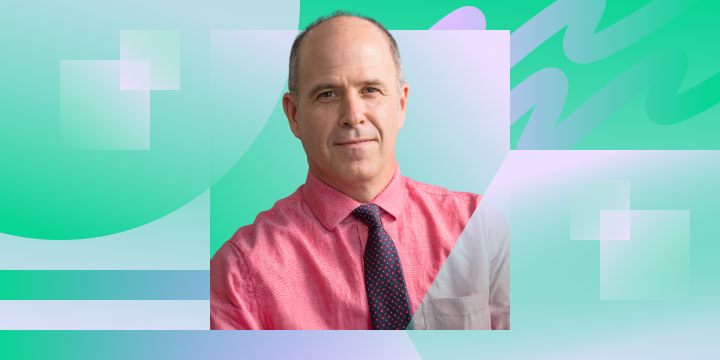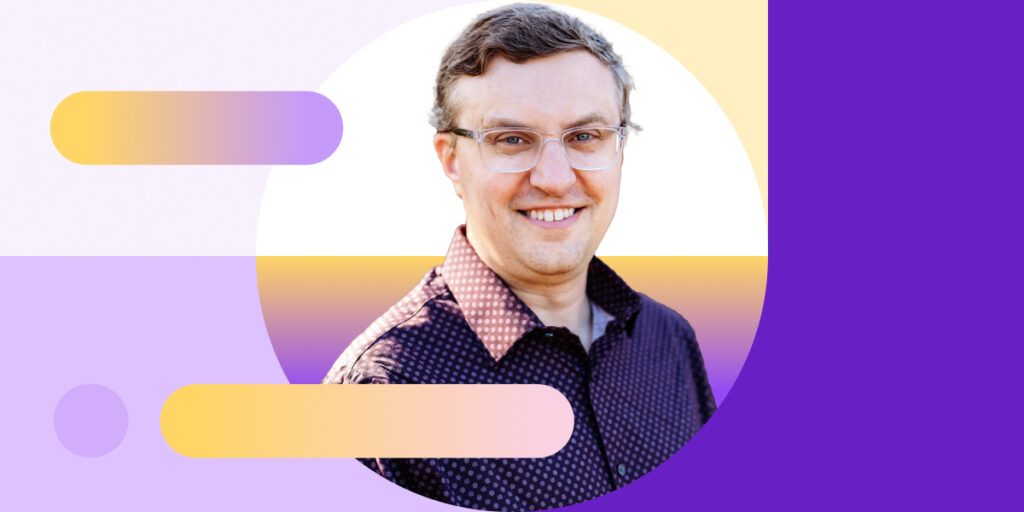Top Hat is the active learning platform that makes it easy for professors to engage students and build comprehension before, during and after class. This is the first installment of our recurring series “Academic Admissions” where we ask interesting people to tell us about the transformative role education has played in their lives.
Todd Rose took an unlikely path from high school to Harvard. After dropping out early in his senior year, he had two kids and found himself working a string of minimum wage jobs before deciding that there was only one way out: He had to get a college education. An unlikely academic, he struggled to fit the university mold until he started leaning in to the things that made him different, rather than trying to conform completely.
Now, he’s the director of the Mind, Brain, and Education program at the Harvard Graduate School of Education, where he leads the Laboratory for the Science of Individuality. Todd is the author of Dark Horse with Ogi Ogas and the bestselling The End of Average.
I failed out of high school with a 0.9 GPA. My girlfriend got pregnant—she’s still my wife today—but we ended up just working a string of minimum wage jobs for a couple of years, and ended up on welfare with two kids, trying to figure out what the hell went wrong.
I literally had ten minimum wage jobs in the span of two years. The last one was giving enemas to people for just barely above minimum wage. And I was like, this can not be my life, right?
I was motivated by desperation. But I believed in the thing we tell everyone: that higher education is this great equalizer.
My Dad was the first high school graduate in his family. He was a mechanic, but he came home one night when I was in middle school, and said, “I think there’s something more for me.” He decided to go to college at night and he became an engineer. Now he invents airbags, designs airbags, does all this great stuff.
So, as a kid, I saw how higher education could transform our lives and life circumstances. We went from working class to being part of the middle class. And when I needed to find a way to get myself out of this hole, it seemed obvious that the only way forward for me at least, was to go to college.
I was motivated by desperation. But I believed in the thing we tell everyone: that higher education is this great equalizer.
So I took the GED and I enrolled in night classes at Utah’s Weber State University. I had no idea what it was that I wanted to do, I just knew I needed to do something different. And that was when I first started appreciating that maybe I had to lean in to the things that made me different, rather than trying to ignore them or conform completely.
When I got to Weber State one of the first experiences I had with a counselor there was, well, really generic. I thought I was getting really personal advice, and he said, “You know you failed algebra three times, so let’s get you in to that remedial math class. Everybody should take first year English. Everybody should take blah-blah-blah.” And I was like okay, hold on.
So I had a long chat with my dad about this, and he said, “Look. It seems like a really bad idea for you to take remedial math.” And so we did some research on it. It was, and it still is, the most taken and failed class in the country. It’s just a really bad idea for someone who has no study skills and is about to dip his toe back in the water of education.
And so, my Dad was like, “Why don’t you take classes that are really interesting to you? Like no matter what? Then use that opportunity to build study skills, so that you can then go to the classes that maybe aren’t as interesting, but that you need to take?”
The first class I took was Interpersonal Psychology with Dr. Julianne Arbuckle, and it was at night. So I’m working during the day, going to school at night, and I’m trying my best. I even bought fake glasses, like I’m gonna look like I’m smart. Trying to be something that I wasn’t. I was doing okay the first couple of assignments and then on the third assignment I decide to stay up all night playing video games with my brother. I just blew off the assignment.
After class, Dr. Arbuckle walked up to me and said, “What happened? That’s not like you to not turn something in.” I was thinking ‘that’s exactly like me.’ But she’s like, “Something must have happened. I don’t need to know what it is but I’m going to give you two more days because I’m sure it must have been something.”
It ended up being a really remarkable experience with a professor that really changed my life. She started from a position of expecting something of me rather than assuming that I would screw up. Suddenly, I didn’t want to disappoint her. It was like, “Wow, she believes in me.”
Mentors and the power of relationships
I had a buddy who was in the honors program at Weber and he hated it. He was like, “There’s no tests. They’re small classes and man, you have to read everything in advance because you have to go in there and debate and have an opinion.” I thought, “Are you kidding me? That could be what a class is? I’ve got to get into the honors program. This is amazing.”
So I went and met with the director, Mikel Vause, and told him I wanted to be in the honors program. And he said, “Okay, what’s your ACT score? Eighteen? There’s just no way. You can’t be serious … you’re not even remotely close to getting in to this.” And I said, “I really, really want to be in the honors program.” He said, “I’m sure you do. But you can’t.” And so I got ready to leave, a little dejected and the secretary, Marilyn Diamond, grabbed me. She said, “Look, if you want this, don’t leave. Don’t leave. Just show him that you’re dead serious about this.”
So I sat out in the lobby for the entire day. Vause would come out and say, “Wait, you’re still here?” I’d say, “Yeah, I want to be in the honors program.” He said, “You’re not going to be in the honors program.” It felt like about a half dozen times that he’d come out and we’d have an exchange like that. Finally, at the very end of the day, he says, “Alright, come in here.” And he says, “Look, I’m going to let you come in on a provisional basis. You can take the first class. But if I so much as hear that you are not the most engaged student in this class and you don’t do really well, that’s it.”
So I got into my first honors class. It was on Plagues of the Modern Era which I still remember because it was terrifying. How close we are to extinction. But it was just awesome. It was the perfect fit for me. I thrived. I actually ended up graduating as the honor student of the year with a 3.97 in Psychology and Pre-Medicine. It taught me a couple of things: One was about the power of relationships—that mentors can make all the difference in the world and really no technology, no curriculum is going to replace those human interactions. Second, it really helped me understand for the first time the importance of fit. Because in the abstract someone who couldn’t even pass Algebra three times and got an 18 on the ACT’s has no business in the honors program but in fact, it was perfect for me.

I started to wonder why I could do so well in some contexts and not in others. At the time, Harvard had just started this Mind, Brain, and Education program which was trying to really do this interdisciplinary work of pulling neuroscience, and other biology, genetics and stuff into issues of psychology and then also education. I thought, “That’s perfect.”
Kurt Fischer [who spearheaded the Mind, Brain, and Education masters program] was doing this innovative and pioneering work where he was demonstrating that the use of averages was actually causing us all kinds of problems. It just really spoke to me. I was like, “That’s what I want to do.” But I actually didn’t even know where Harvard was. I grew up in rural Utah. I could not have told you what state Harvard was in. I just knew that this was the guy I wanted to work with, so I decided to apply. I ended up getting in and to make a long story short, I’m actually the director of the program that Kurt started. He’s retired, so that’s kind of a fun full circle experience for me.
This lack of uniformity in students is something that I think the higher ed system needs to accommodate. Unlike K-12, which still also needs to deal with this issue of individuality in a meaningful way, I think higher education has extra pressure because of the cost and the recognition that maybe the value proposition isn’t there in that same way it has been in the past. There’s a real question of whether these ridiculous costs for a four-year diploma are really paying off anymore. And that’s not to say you shouldn’t go to college. But we should ask those hard questions or at least make sure that it’s worth it.
Competence and mastery versus box-ticking
I feel like that when you see the shifting landscape of the sort of future of work and you see companies like Google and Apple and IBM saying, “You know what? We don’t really care if you have a college diploma. We just need to know that you have these skills and this knowledge.”
I think that higher ed will have to respond.
But there are some simple things that we can do to improve higher ed and they’re not really rocket science. For one, I think it’s absurd that we focus on fixed amounts of time and grades. It’s absurd. It’s very, very hard to justify that pedagogical approach when we know so much more about mastery-based learning. I think the reason higher ed has been held back on this is the Carnegie Unit [where an instructor is expected to have 120 hours of class or contact time with a student over the course of a year at the secondary school level]. So much is built around that that it’s hard. But we can fix that. Southern New Hampshire University has already got their first fully competency-based curriculum.
If a kid knows what they want to do and they have a good mentor, they’ll pick the classes they need to take. You don’t have to frogmarch them through all these classes.
The other thing is, frankly, I think we have to start to unbundle a bunch of course requirements. Charles Eliot—the former president of Harvard way back when—decided the same thing was a problem, so he made Harvard entirely elective. There were no required courses. And his argument was basically that if a kid knows what they want to do and they have a good mentor, they’ll pick the classes they need to take. You don’t have to frogmarch them through all these classes.
I’ve been working on something called the Dark Horse Project at Harvard Graduate School Education, which is the subject of my new book about success. Dark horses are iconoclasts who become successful, and who no one sees coming. My research partner Ogi Ogas and I ended up talking to hundreds of people, from as many walks of life, as many professions as we could. It was the first qualitative research that either one of us had done.
I thought the only thing they’d have in common, is a personality. Like it had to be someone who gets off on bucking the system. But that’s not it at all. All the dark horses wanted to talk about was how they’d just figured out what they cared about most. Some of them would literally say fulfillment—like they prioritize personal fulfillment, that was their view of success. Other people talked about meaning and purpose, but it was all they wanted to talk about. It was kind of maddening. At first we’re like “Ah. What do you do with that? I don’t wanna hear this fulfillment, right?”
But it kept coming up, so we decided to dig into it. If what they’re saying matters—that to succeed you need to really prioritize fulfillment—how do they make that actionable? How is that not just like, “Follow your bliss off a cliff”? But there’s a handful of things that these men and women know and do that make the pursuit of fulfillment a reliable path to success. And it’s that prioritizing that personal fulfillment, that puts them on a very individual path, and then I think it’s ultimately what allows them to be successful and happy.
If you’d asked me before The Dark Horse Project, “Should anyone follow my path?” I would have said “I don’t know, man.” There’s a lot of luck involved. I worked really hard to get back, but had some luck too.
The sooner you can figure out that the only way to have a successful and happy life is to orient your choices around things that truly matter to you, then it’s not a trade off, it’s not that versus achieving things. You can have both, you just have to prioritize fulfillment.
As told to Top Hat. Transcript edited and condensed for clarity.


